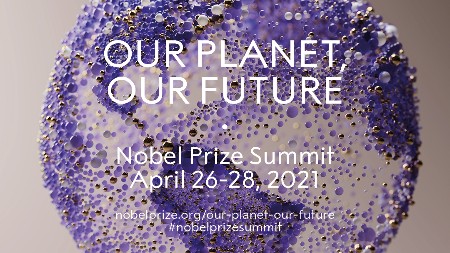In a virtual summit which I attended last week a series of seminars and discussions led by Nobel prize laureates focused on the problems facing human prosperity and equity in the face of environmental destruction from anthropogenic climate change.
In a summary statement, the steering committee of the summit along with presenters focused on the “quest for truth, knowledge, and innovation toward a better life.” In the summary statement, they called on humanity “to reinvent our relationship with planet Earth.”
It went further stating “The future of all life on this planet, humans and our societies included, requires us to become effective stewards of the global commons — the climate, ice, land, ocean, freshwater, forests, soils, and rich diversity of life that regulate the state of the planet, and combine to create a unique and harmonious life-support system. There is now an existential need to build economies and societies that support Earth system harmony rather than disrupt it.”
What is happening to the “global commons,” the term used above that signifies the environment in which we share all of the life here on Earth, is a crisis caused by our destabilizing impact on the planet.
The conference statement includes the following observations as justification for decisive action:
- “For 3 million years, global mean temperature increases have not exceeded 2°C of global warming, yet that is what is in prospect within this century.
- We are on a path that has taken us to 1.2°C warming so far — the warmest temperature on Earth since we left the last ice age some 20,000 years ago, and which will take us to >3°C warming in 80 years.
- At the same time, we are losing Earth resilience, having transformed half of Earth’s land outside of the ice sheets, largely through farming expansion.
- Of an estimated 8 million species on Earth, about 1 million are under threat.
- Since the 1970s, there has been an estimated 68% decline in the populations of vertebrate species.”
The conclusion is that we presently are in the decisive decade that will determine the future habitability of our planet.
In its concluding statement, the summit doesn’t ask whether we should be transitioning away from fossil fuel dependence, but rather can we do it fast enough. It proposes as a series of solutions, the following:
- POLICY: Nations measure their success by calculating gross domestic product or GDP. We need a second metric that measures the true well-being of people and nature. We need to recognize that increasing disparity between rich and poor feeds resentment and distrust, undermining the social contract, and inhibiting collective decision-making. And we need to recognize that deteriorating ecosystems undermine human survival.
- MISSION-DRIVEN INNOVATION: We need to fund transformational innovation. Today’s challenges require large-scale collaboration among researchers, government, and business, all focused on global sustainability.
- EDUCATION: We need to educate all ages to understand the nature of evidence, the scientific method, and scientific consensus to ensure humanity has the means to make necessary political and economic decisions focused on planetary stewardship. We need to invest in life-long learning and inculcate fact-based world views in the general population.
- INFORMATION TECHNOLOGY: We need to end the influence of those who spread disinformation and misinformation through social media and other digital information sources. These technologies are eroding public trust and governments and society need to act to counter the mass spread of misinformation while enhancing global communication systems to serve our planetary stewardship goals.
- FINANCE AND BUSINESS: We need investors and companies to adopt circular economic principles and apply science-based targets to all activities within the global commons. All economic, environmental, and social externalities should be fairly priced.
- SCIENTIFIC COLLABORATION: We need to make greater investments in international networks of scientific institutions to foster sustained collaboration focused on the science to support global sustainability. We also need to create transdisciplinary science to integrate diverse knowledge systems that include local, indigenous, and traditional knowledge.
- KNOWLEDGE: The pandemic has demonstrated the value of basic research to policymakers and the public. We should learn from this to make a commitment to sustained investment in basic research. And we need to develop new business models that freely share all scientific knowledge for the purpose of benefiting the global commons and humanity.
In one of the last seminars I virtually attended, a Nobel laureate suggested this basic principle as a means to guide us. It is, “do no harm.”
Imagine if this precautionary principle were adopted by all of humanity, all the nations and cultures of the planet, to guide our activities going forward.
But why imagine it, why not do it. And as the “Our Planet, Our Future” summit concludes, this is the decisive decade in which it needs to be done.









